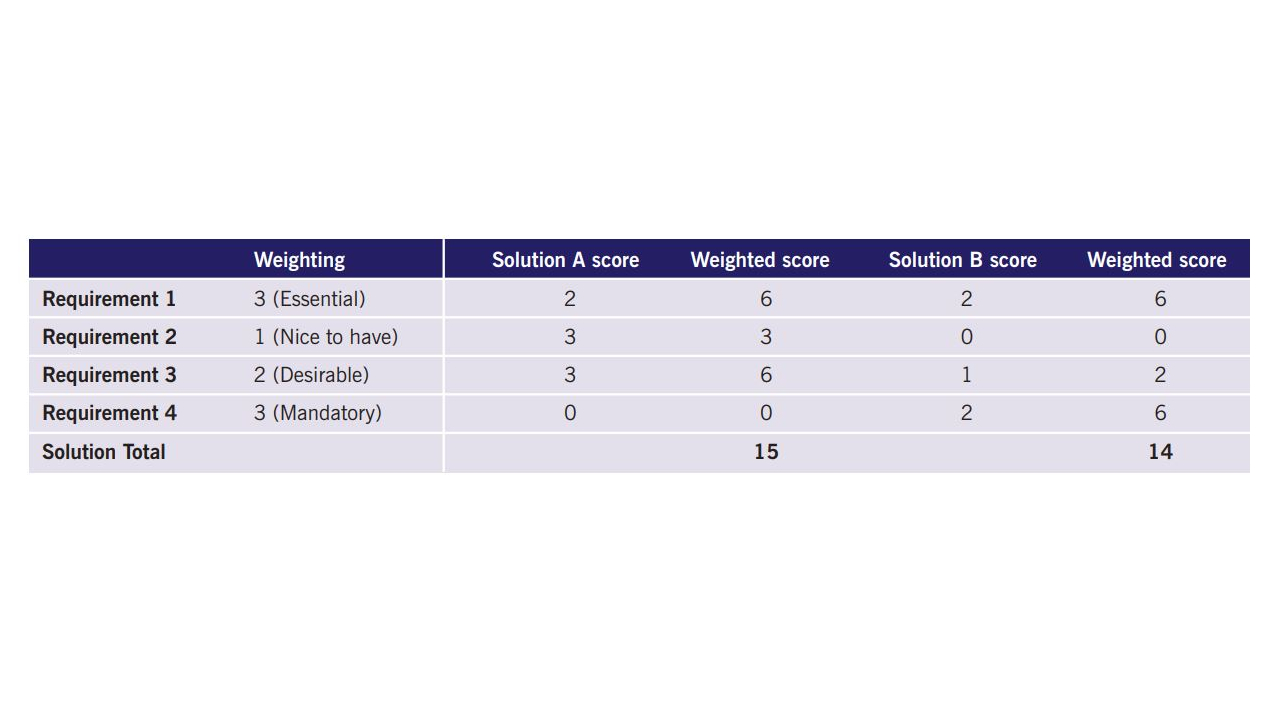
As a start-up or more established small business you will have many things to think about and hundreds of competing demands for your scarce resources. When the time is right it is important to select the business applications which will meet your business needs today, while also supporting your organisation’s growth plans and ability to meet statutory requirements.
- We've put together a list of the best small business software
Focus on the fundamentals...
With limited time and resources, your first focus should be on launching the business and keeping it running. What are the real essentials to attract funding; find and retain customers; develop and deliver products and services? Your most important objectives will depend on what type of business you are and this will drive which software is best suited to meet your needs.
An online retailer will have different business application needs to a new manufacturing company or an organisation which is all about providing people and services.
It’s easy to be distracted by what’s more fun or interesting to do or what’s in vogue. For example, you might personally enjoy communicating with ‘potential customers’ via social media or building a whizz-bang web site, more than ensuring deliveries are on time or chasing customers for payment BUT you must concentrate on what’s vital to launch, sustain and grow your type of business.
Takeaway: Identify what’s really important to your business now then laser FOCUS on that.
But don’t forget the plumbing
Cash-flow management, bookkeeping, accounting, financial reporting, expense control, VAT reporting, payroll, pension provision… we’re guessing that these aren’t on your list of most exciting things to think about. However neglecting these background processes could sink your business, slow its growth or, at the very least, eat up huge amounts of your time which could be better spent on looking after customers or improving products.
When you first start your business bear these important ‘back-office’ functions in mind but don’t become immobilised by planning the ‘perfect’ infrastructure to support them from day one. Initially many of these workflows can be handled by spreadsheets and online documents but, as your business grows, there will rapidly come a point when the right software tools for accounting, payroll, expense management etc. will become vital so you can better manage your operations, meet regulatory needs and free up time to think about expansion.
Are you a pro? Subscribe to our newsletter
Sign up to the TechRadar Pro newsletter to get all the top news, opinion, features and guidance your business needs to succeed!
Takeaway: Introduce business applications step-by-step as you grow to support your must do ‘back-office’ processes.
- Here is our guide to the best small business tax software
Do the research
What’s the right type of solution for your business? A business app run on your mobile? A Cloud-based system – run by the vendor and accessed online? An outsourced service provided by a third party? A mixture?
There’s a wide range of solutions out there. For example, a search for ‘accounting’ or ‘bookkeeping’ on the online app stores will currently return close to 100 options for each. Some apps are at the top of the list because of paid advertising. Some apps are free; some have an up-front fee; some feature ‘In-App Purchases’ which charge as more functionality is unlocked.
Given the breadth of options, most people look for advice to help them make their choices. There’s no one best tool which fits all types of business, so it’s important to be clear what your own objectives and needs are first before seeking guidance. Just because a particular solution is in fashion or was successfully used by a colleague at another organisation, doesn’t mean it’s right for a business in your industry with your current challenges. Draw together information from a range of sources. Here are some good places to look:
- Your peer network – ask people you respect for what worked for them but be sure their use case was analogous to your own situation.
- Accountants and Bookkeepers – what have they used with other clients like you?
- Trade Associations – trade bodies like FSB and ICAEW provide good online advice and networking opportunities.
- Reviews and ratings – simple star ratings can be found in app stores such as Google Play or the Apple App Store. More detailed reviews can be found in online and print IT and business magazines.
- Case studies – blogs from entrepreneurs and customer stories from software vendor web sites will often give a fuller picture of how software was used in a particular type of business – again make sure that the context matches your own.
Takeaway: Benefit from the experience of others but make sure that their situation is relevant to your own needs.
- These are the best small business apps
It's not just about the software
It’s important that the software provides the functionality which your organisation requires but there are other factors to consider when making your choice:
- Support – what happens if you need some help or encounter a problem? Is online or telephone support provided? Is there an additional charge for this? Are the opening hours and response times suited to your own business hours and deadlines? Review sites such as Trustpilot provide customer feedback on support and service performance.
- Self-help – can you access online FAQs and discussion forums? Are there user groups and user conferences?
- Training – is the software so intuitive you don’t need training? If not are there online courses, training videos or convenient locations which provide education.
- On-going functionality and costs – if your business grows are there costs such as ‘In App Purchases’ or a charge for new modules? How will changes in legislation be supported – as part of regular upgrades? Will these be chargeable?
- Viability and reputation of the vendor – will the software provider be around for the long term, continuing to develop the solution you require?
Takeaway: It’s important to choose the right software but also the right solution provider and community to support your business now and in the future.
- Here's our list of the best accounting software available now
How to make your final decision
Whether you are solely responsible for the choice of business applications or it is a team decision, it can be a good idea to borrow the method used by larger organisations when comparing different solutions and providers – though obviously applied in a ‘lite touch’ manner.
A typical scoring scheme to support software selection might work like this:
- Make a list of each of your requirements – then weight and score each requirement based on the method below.
- First assign a weighting against each requirement based on how important it is to you: Essential/Mandatory = 3, Desirable = 2, Nice to have = 1
- Next review how each solution matches up and assign an evaluation score for it against each requirement: Does not meet my requirements = 0, Partially meets my requirements = 1, Fully meets my requirements = 2, Exceeds my requirements in a way which might be useful in the future = 3
- For each requirement multiply the evaluation score by the weighting.
- Add up all the points to give a points total for the solution.
- The solution with the greatest points total is selected UNLESS some Essential/Mandatory requirements are not met AND the solution provider cannot offer a satisfactory workaround.
Example below – Solution A scores the highest but might still be rejected if the provider cannot show how a mandatory requirement can be met:

Takeaway: Formalising your decision making will keep you focused on what functionality you really need as it is easy to forget the basics and be distracted by ‘exciting’ features you may never require.
- Also check out our roundup of the best free software for small businesses
This guide is from the UK trade body, BASDA (The Business Application Software Developers Association) which has given TechRadar Pro permission to republish it. BASDA operates through representation and collaboration to ensure that the voice of the UK business software industry is heard by some of the highest levels within UK government, policy-makers and industry media. You can learn more about BASDA here.
As a UK trade body, BASDA (The Business Application Software Developers Association) operates through representation and collaboration to ensure that the voice of the UK business software industry is heard by some of the highest levels within UK government, policy-makers and industry media.